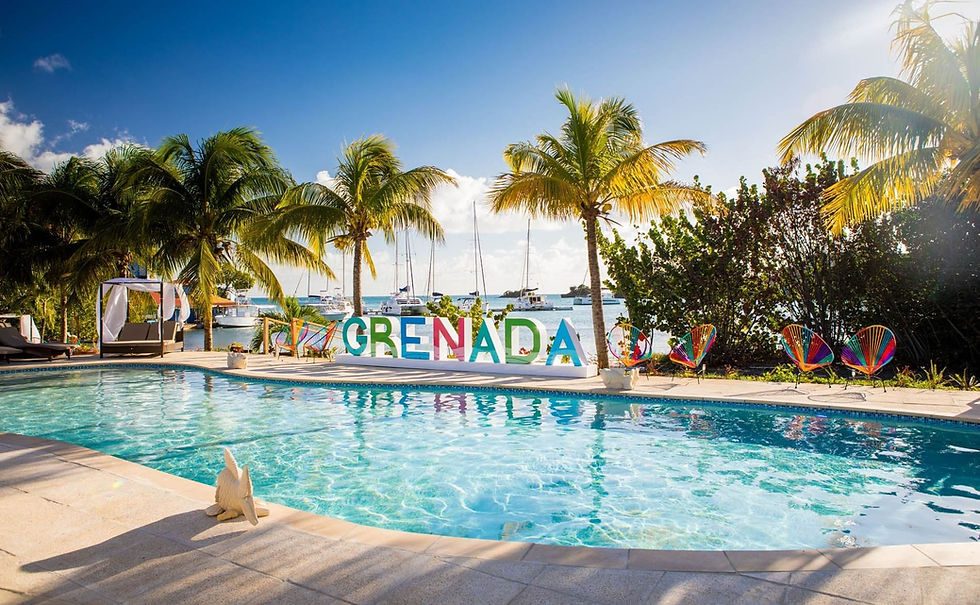Saving Our Reefs: How Divers Can Help Protect Coral Ecosystems
- The Scuba Holiday Blog Team

- Jun 18, 2025
- 3 min read
Why Coral Reefs Need Our Help
Coral reefs are among the most diverse and vital ecosystems on Earth. They cover less than 1% of the ocean floor yet support more than 25% of marine life. But these stunning underwater landscapes are under siege — from climate change, pollution, overfishing, and yes, even divers.
Fortunately, divers can also be a powerful part of the solution. With the right awareness and habits, we can reduce our impact and help preserve these ecosystems for future generations.
The Top Threats to Coral Reefs
Before we can protect reefs, it helps to understand what’s putting them at risk:
Climate Change: Warmer ocean temperatures lead to coral bleaching, a stress response that can kill coral.
Pollution: Sunscreens, plastic waste, and agricultural runoff poison reef ecosystems.
Physical Damage: Touching coral, poor buoyancy, or dragging fins/equipment can break fragile structures.
Overfishing & Anchoring: These disturb reef balance and cause habitat destruction.
By being mindful of these threats, divers can adjust behavior and contribute positively to reef conservation.
Reef-Safe Diving Starts With You
Here’s how to dive responsibly and leave reefs better than you found them:
1. Master Your Buoyancy
This is the most important skill for reef preservation. Good buoyancy keeps you from accidentally kicking, crashing into, or hovering too close to coral. If you’re unsure, take a Peak Performance Buoyancy course — it makes a big difference.
2. Wear Reef-Safe Sunscreen
Many chemical sunscreens contain oxybenzone and octinoxate, both toxic to coral larvae. Instead, opt for mineral-based, reef-safe sunscreens with non-nano zinc oxide.
Pro tip: Wear a rash guard or dive skin to minimize sunscreen use altogether.
3. Streamline Your Gear
Dangling gauges, octos, or camera arms can cause accidental contact. Secure everything close to your body and tuck away loose hoses.
4. Respect Wildlife
Observe, don’t disturb. That means no touching, feeding, or chasing marine life. Let your camera zoom do the work.
5. Avoid Standing or Resting on Coral
Even a light touch can harm coral polyps. Use a reef hook only when appropriate and avoid kneeling on the bottom — practice hovering instead.
6. Support Marine Parks & Permits
Many protected areas (like Bonaire, Indonesia, and the Galapagos) require a marine park tag or fee. These contributions fund reef conservation, education, and enforcement. Always pay them — and consider donating more if you can.
The Power of Education & Local Involvement
Responsible divers go beyond awareness by actively contributing:
Take marine life ID and conservation courses to deepen your knowledge
Join reef cleanups hosted by local dive shops or NGOs
Support dive operators that follow eco-dive guidelines and train their staff in sustainable practices
Participate in citizen science: Log species sightings, water conditions, and coral health in global databases
What We Do at Scuba Holidays
At Scuba Holidays, we’re committed to sustainable travel. All of our featured destinations — from Bonaire to Indonesia — are chosen for their eco-minded dive operations and active marine protection efforts. We have started an initiative called Eco Fin Print. The goal is to have a minimized impact on the environment when we travel. Travelling with less disposable plastics. Some examples are bringing reusable water bottles, filling liquids for toiletries in reusable containers to avoid leaving plastic behind. An incredibly important change would be using Reef Safe sunscreen such as Stream2Sea
We partner with resorts and liveaboards that:
Follow responsible diving standards
Offer reef conservation courses or programs
Participate in marine park management
Minimize plastic waste and support local communities
Want to learn more about our responsible travel approach?🔗 Read about our commitment
What You Do Matters
Every dive is a chance to enjoy the ocean — and protect it. By fine-tuning your buoyancy, choosing reef-safe gear and sunscreen, and engaging with conservation efforts, you make a real impact.
The next time you enter the water, remember: You’re a guest in someone else’s home. Let’s keep it thriving for the next divers who follow.




Comments